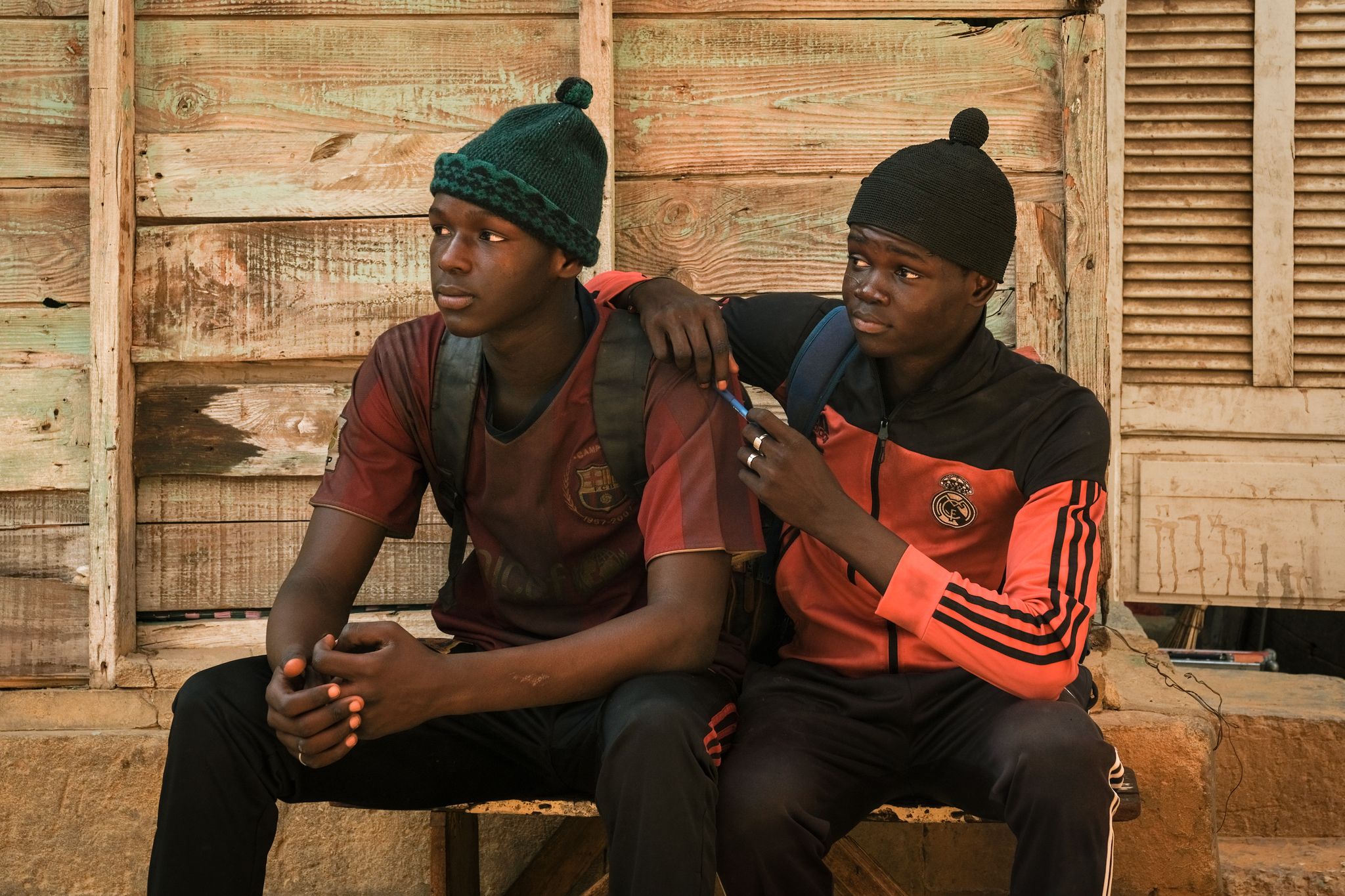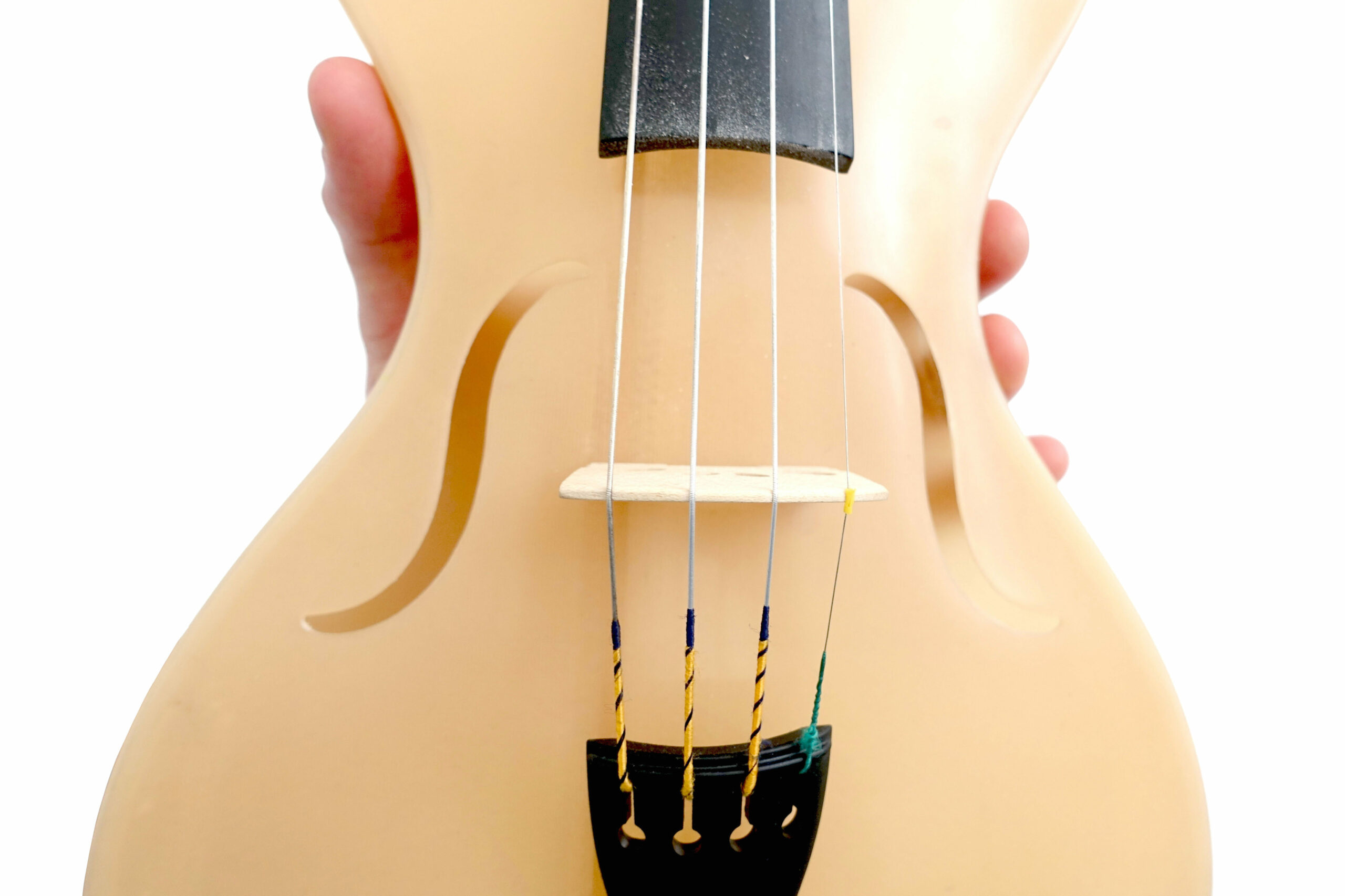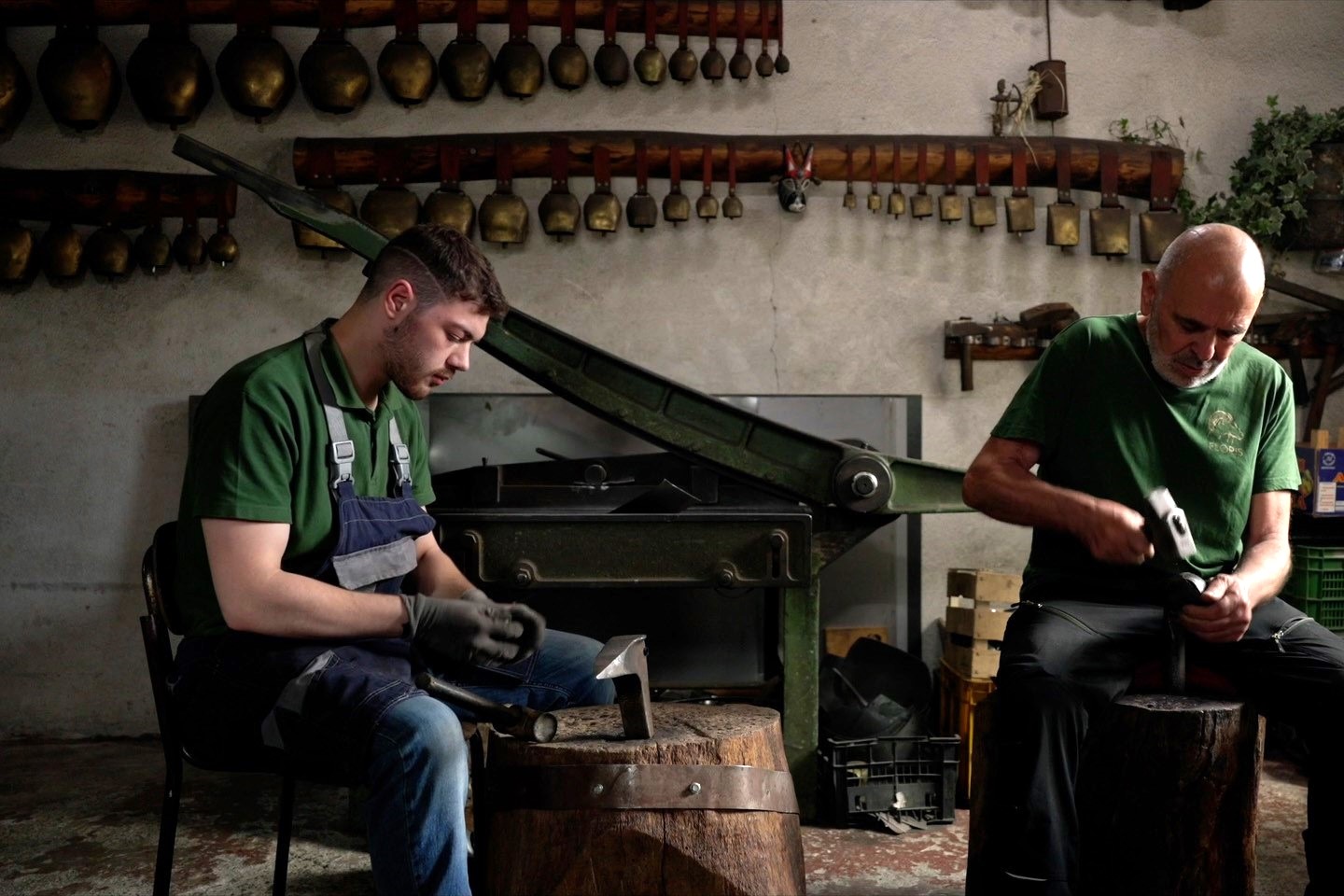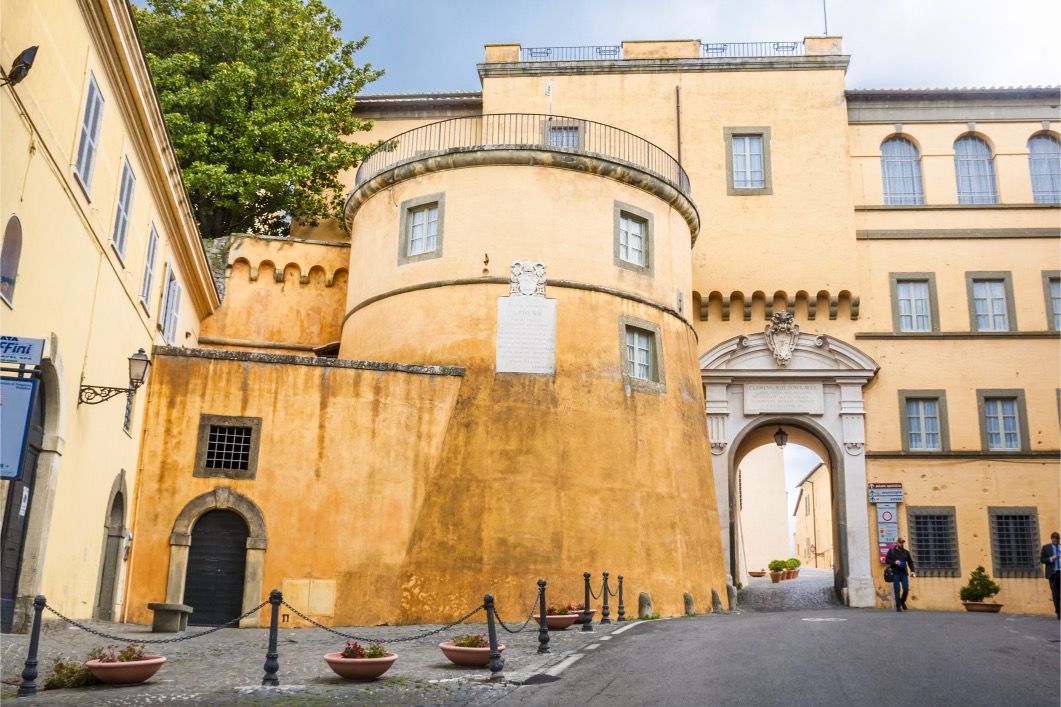The journey of two young men making their way to Europe from Africa is at the heart of Matteo Garrone’s latest movie. Io Capitano, released in September 2023, is now being shown across the United States, with a stop that saw Director Garrone and the main actors in LA first, before getting to the Bay Area. The movie has been shortlisted as the Italian entry for Best International Feature Film at the 96th Academy Awards. In December, Cohen Media Group announced they bought North American rights, with the release in theaters planned for early 2024.
L’Italo-Americano interviewed Director Garrone in Southern California; however, the screening at the Kabuki in San Francisco allowed us to dive into the experience of the two main actors, Seydou Sarr and Moustapha Fall. This was also the occasion for an intimate audience to watch the movie, and engage in a powerful Q&A.
Seydou and Moustapha played the role of two cousins who decided to leave Africa and embark on an unknown journey across the desert and the sea. In addition to the hardness of the environment, sun, and cold nights, they also witness mass death in the Sahara, scams, and torture beyond their imagination and expectation. More than an adventure, the movie is a testament to the odyssey migrants face when they choose to leave their homeland, hoping for a better, safer life. The decision to leave, after being warned about the potential risk by their families, is difficult, as the main characters pay smugglers who promise safe passage and end up extorting them more money under the threat of torture and jail time.
Director Garrone refuses the format of both a documentary and of realism, embracing views over the Sahara desert, the Mediterranean Sea, and Libya, through striking scenes shot over thirteen weeks.
“I tried to focus on what was missing, which is the journey before migrants arrive in Europe,” Director Garrone said during the Q&A. “We wanted to give visual shape to the part of the journey nobody sees. We offered the audience the possibility to live this experience with a different perspective. Behind the numbers we hear in the news, there are people, human beings. This isn’t a story of migrants escaping war, although there are surely some who do. Seventy percent of them are young people who use social media as a window into our world, but they cannot take a flight to come see it, they don’t have the privilege we all have. And this is the big injustice that lies at the root of their journey.”
We met with Seydou and Moustapha on a joyful afternoon at the Fairmont Hotel in San Francisco, right after they visited the Pixar studios.
Seydou was living in Senegal with his mom and siblings with a dream of being a soccer player. Coming from a family of artists, with both his mom and his sister being actresses, he heard about the casting and decided to show up. Moustapha also heard about the casting and gave it a try. His dream was to become an actor. They didn’t know much of the script when they started and discovered the adventures they’d face day by day. It became a marriage between the person, who is hoping to get to Europe one day, and the character, who embarks on the journey without knowing whether or not they’d reach the final destination. Both actors bring authenticity and humanity to the movie, and the audience can experience that through their eyes and their voices. “Me captain” – which is what Seydou yells when seeing Italy from the boat – became the title of the movie, inspired by the true story of the young hero who saved the lives of 200 people on a boat, yet was sent to jail.
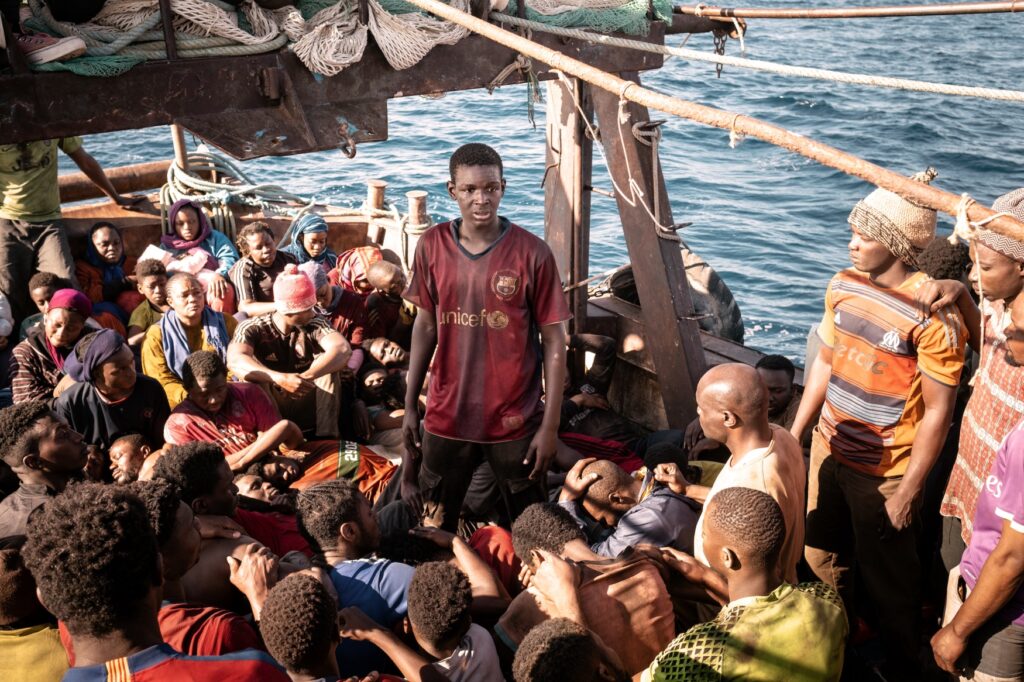
When it comes to Garrone’s project, Seydou told us: “It’s important to show what happens. The news only focuses on the boats, instead, there’s lots of suffering happening in the desert and nobody knows about it. If you are a person with a heart, you’ll understand that people suffer and minds can be changed.”
The two characters chase their dream of freedom by risking their lives. For Moustapha, freedom is the right to know who you want to become and to be independent in life. “We African people don’t have the freedom of traveling the moment we want to do it. Young people need to discover the world, even when their parents tell them not to do it because of the journey ahead.” On the same note, Seydou: “We cannot be fully free because of the impossibility of going where we want. We legitimately want to leave, we want to succeed. But in the end, leaving may just be a utopia. You may not solve your problems even if you do.”
Sharing more about the shooting, both actors, who are at the beginning of their careers, see the moment in the desert, filmed in Morocco, as the hardest to play. For Seydou, the scene when a woman dies in his arms wasn’t easy: “It reminds me of my dad who passed away in a similar situation, and that’s difficult to accept. In terms of intensity, I felt the same emotions and the memory is still very strong with me.” Being so hot in the day and so cold at night was a real challenge, and the moment when Moussa (Moustapha Fall) had to leave his cousin to go to jail was tough.
In Morocco, they met people who really took this trip, and that motivated them both to go ahead with the project: their stories convinced them they were part of the right movie. No matter how demanding and onerous the movie was for their first acting experience, they both loved it and they want to do more.
The relationship with Director Garrone was also crucial for the movie: like the director mentioned during the Q&A, he was amazed to see how the cast was able to jump on the parts he had put together and move forward even before he spoke or started directing them. “Matteo was looking at us like sons, more than actors,” Seydou said. “He was very nice to us”. Likewise, Mousthapha shared how humble and generous Director Garrone is, and how working under his direction taught him a lot of things.
A friendship was also born between the two on set. Seydou and Moustapha didn’t know each other before the last casting in Dakar, but they became friends and the bonding is still very strong.
And that last scene of the movie, with Captain Seydou on the boat crying “Me, captain,” alongside hundreds of people praying, singing, and hugging, will stay with them forever.
